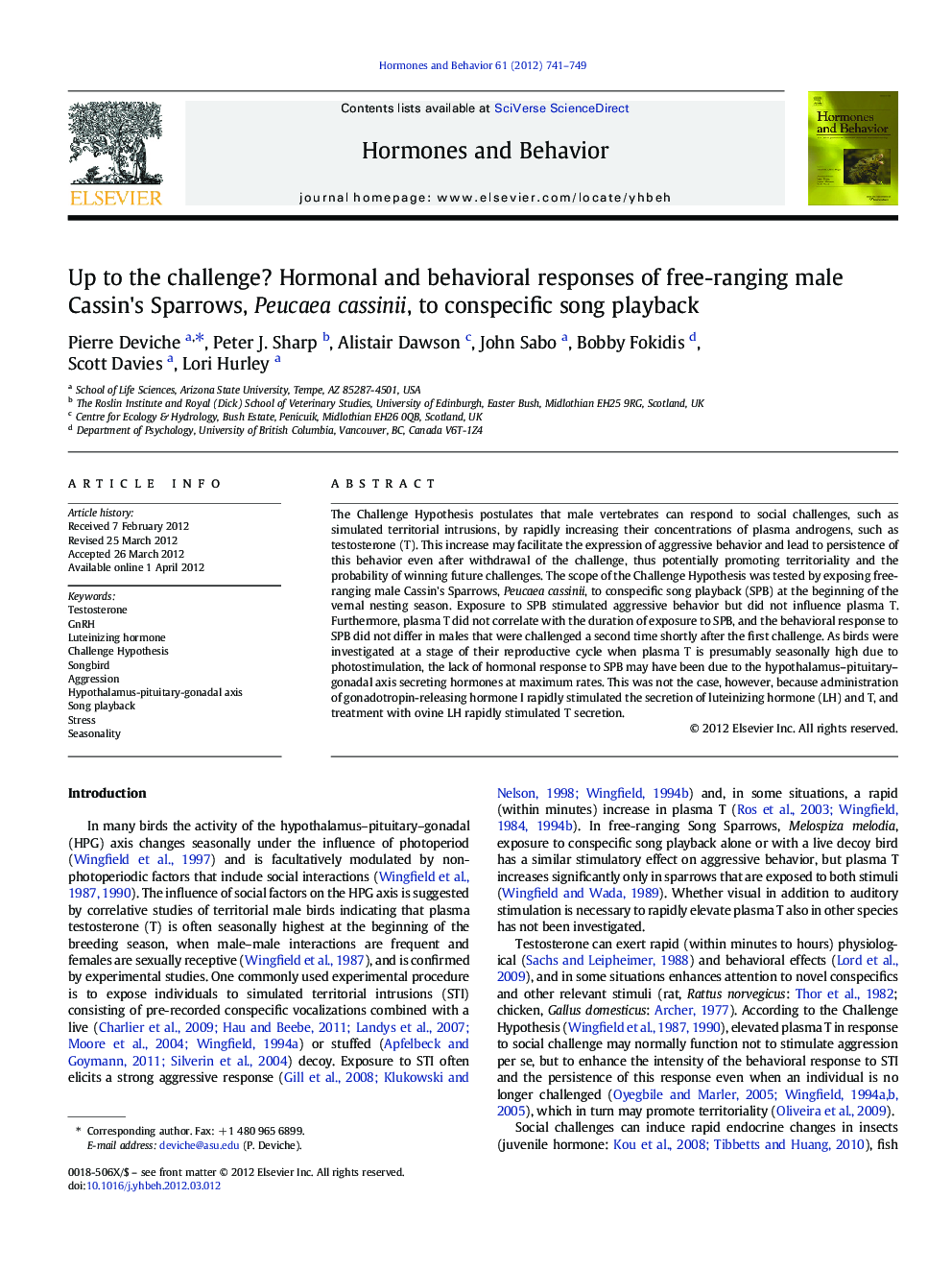| Article ID | Journal | Published Year | Pages | File Type |
|---|---|---|---|---|
| 323435 | Hormones and Behavior | 2012 | 9 Pages |
The Challenge Hypothesis postulates that male vertebrates can respond to social challenges, such as simulated territorial intrusions, by rapidly increasing their concentrations of plasma androgens, such as testosterone (T). This increase may facilitate the expression of aggressive behavior and lead to persistence of this behavior even after withdrawal of the challenge, thus potentially promoting territoriality and the probability of winning future challenges. The scope of the Challenge Hypothesis was tested by exposing free-ranging male Cassin's Sparrows, Peucaea cassinii, to conspecific song playback (SPB) at the beginning of the vernal nesting season. Exposure to SPB stimulated aggressive behavior but did not influence plasma T. Furthermore, plasma T did not correlate with the duration of exposure to SPB, and the behavioral response to SPB did not differ in males that were challenged a second time shortly after the first challenge. As birds were investigated at a stage of their reproductive cycle when plasma T is presumably seasonally high due to photostimulation, the lack of hormonal response to SPB may have been due to the hypothalamus–pituitary–gonadal axis secreting hormones at maximum rates. This was not the case, however, because administration of gonadotropin-releasing hormone I rapidly stimulated the secretion of luteinizing hormone (LH) and T, and treatment with ovine LH rapidly stimulated T secretion.
► We studied wild male Cassin's Sparrows at the beginning of their breeding season. ► Birds respond aggressively to conspecific song playback. ► This behavioral response is not associated with elevated plasma testosterone (T). ► The lack of endocrine response does not result from maximum HPG activity. ► The acute stress of capture and restraint rapidly decreases plasma T.
